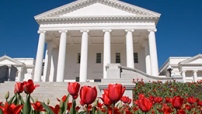
The General Assembly Giveth and the General Assembly Tries to Takeith Away
As a rule, the General Assembly – actually, any politician – should not make decisions about which transportation projects to fund and how to build them. In fact, the Commonwealth created the Virginia Department of Transportation and the Virginia Highway Commission (today called the Commonwealth Transportation Board (CTB) to take politics OUT of these decisions.
You need look no further than Northern Virginia’s gridlock for proof of the wisdom of this approach. Today’s gridlock and sprawling development are a direct result of decades of failure to build planned transportation improvements that would have reduced congestion and better focused development. Removing roads did not stop growth; growth happened, anyway, driven by market demand, but without the transportation network needed to serve it. As a result, we sit for hours on congested roads, which is detrimental to our families and quality of life.
As with every rule, there are some exceptions. Case in point, recently, Governor McAuliffe and members from both parties and both chambers of the Virginia General Assembly announced a bipartisan agreement to move forward on a plan to reduce congestion on I-66 inside the Capitol Beltway by widening a four mile stretch from the Dulles Connector Road to Ballston; in addition to improving transit, and adding new options for single drivers along the corridor.
This agreement, came about because the General Assembly put heavy pressure on the Governor and Secretary of Transportation to fix a flawed agreement on I-66 improvements approved a few months ago by the CTB. Thanks to the General Assembly compromise, a third eastbound lane can open on I-66 in 3-4 years, not decades as envisioned under the original agreement. Along with new transit services, this immediate improvement to I-66 would help unlock one of Northern Virginia’s worst chokepoints.
Unfortunately, what the General Assembly giveth with one hand, it proposes to takeith away with the other. Several General Assembly members have proposed amendments to the budget that would jeopardizing what is at best a tenuous compromise. If they succeed, it would be a tremendous setback for the region and Commonwealth. The business community is working hard to try to stop these amendments.
Ultimately, this entire mess just proves the rule: the General Assembly should leave the decisions about transportation improvements to the professionals.
